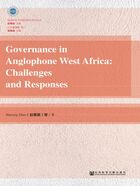
1.3.3 Local Government System
The Local Government Act established 7 local government areas each subdivided into districts and wards for the election of council members. The Chairperson of the Council is elected by eligible voters in the local government area and councilors are elected by the wards. The local governments are Banjul Local Government Area (LGA), Kanifing LGA, Brikana LGA, Mansakonko LGA, Kerewan LGA, Kuntaur LGA, Janjanbureh LGA and Basse LGA (formerly known as Upper River). The Local Government Act requires that Central Government provide twenty-five percent of the councils’ development budgets, but does not specify when the monies are due to the council. However, the central government has since starved local government authority of statutory funds[8].
The regional governors are the direct representatives of the centre and coordinate the activities of the decentralised structures of all departments of state. They also ensure that power is properly devolved to appropriate levels. The Gambian Local Government Act, 2002 mandates that the Regional Governor shall exercise executive powers under the instruction of the President. The Governors are also expected to inspect and monitor the activities of local government authorities and carry out duties assigned by the President or the National Assembly.
The Local Government Act provides that councils shall be established for the local government areas and be constituted and have following features[9]:
·Each council shall be a body corporate by the name “area council”, “municipal council” or “city council” as may be appropriate, preceded by the name of the local government area for which the council is established.
·Each council shall have perpetual succession and a common seal with power to sue and be sued in its corporate name.
·The Secretary of State may, by order published in the Gazette, establish such additional councils as he or she may deem necessary for the administration of the local government area.
·Each council shall be vested with the legislative power of the local government area and be answerable to the governor.
·The legislative power of the council shall be exercised by by-laws passed by the council in accordance with the Act and signed by the governor.
The composition of the council is:
·a chairperson elected in accordance with Section 13 of the Local Government Act, 2004;
·a seyfo representative member selected by all the district seyfolu[2], or in the case of a municipality, an alkalo representative selected by all the alkalolu[3] in the municipality;
·a youth representative;
·a woman nominated to represent women’s groups in the area whenever more than two-thirds of the members elected under paragraph (b) of Section 13 of the Act are male;
·nominated members, consisting of not more than one-fifth of the elected members of a Council, representing local, commercial and social interest groups;
·nominated members shall be proposed by the civil organisations or interest groups they represent and appointed by the chairperson with the concurrence of the Secretary of State.
The chairperson of a city council or municipal council shall be known as the mayor or mayoress. The municipal councils or municipality is established by the Independent Electoral Commission based on the Constitution of the Republic of the Gambia. The mayors are elected by the people within the jurisdiction of the municipality. The mayors in Banjul and Kanifing Municipality are responsible for the administration of the municipality. There are also wards who are represented by Councilors under the local governments’ areas. The Councilors are elected by the people. The Councilors work under the Municipalities through specialized Committees like education, health, agriculture, environment, youth, women and children, and sports and culture. There are also Technical Advisory Committee, Ward Development Committee, and sub-ward Development Committees who are in charge of the development of local communities.
The District Seyfolu were established by former President Yahya Jammeh in 2007. The National Council of Seyfolu consists of the Paramount Seyfo as the chairperson and all the Seyfolu in the country. The Local Government Act, 2002 mandates the President to appoint the District Seyfolu in consultation with the Minister of Local government in rotational basis. This effort aims at deepening the country’s decentralization process. The responsibilities are:
·settling disputes affecting the seyfolu in The Gambia;
·dealing with matters relating to the administration of justice and social development, cultural and traditional issues;
·to promote good order and stability in their district;
·to preside over the district tribunal, and hear and determine matters over which they have jurisdiction according to law;
·to promote the general well-being of the district;
·to safeguard the traditions, customs and culture of the district and promote the well-being of its people;
·to keep a register of every village in the district, and perform such other duties as may be assigned to him or her by the council of the governor.